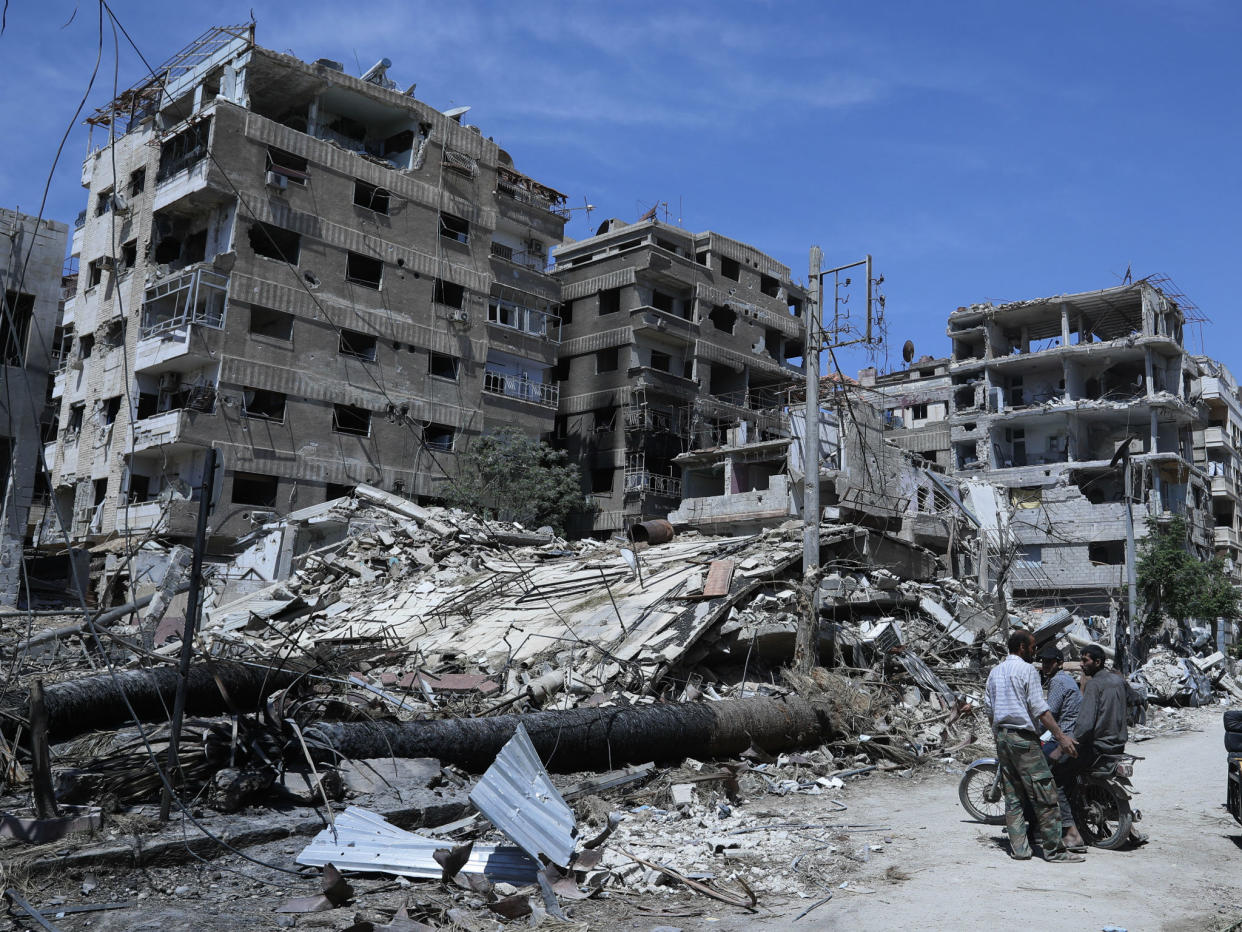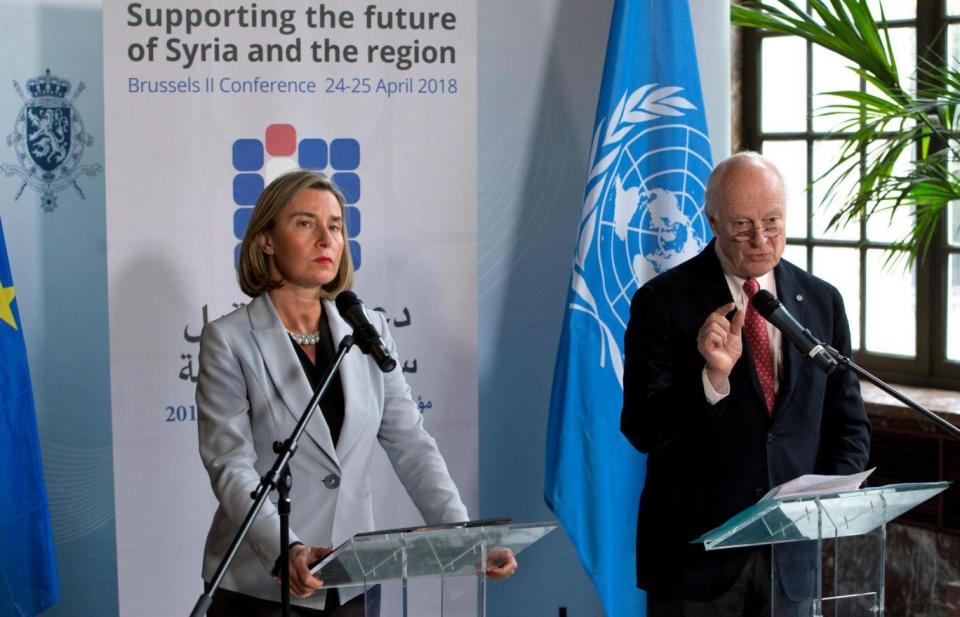Britain to ramp up aid to Syria over next two years

Britain will ramp up its aid to Syria over the coming two years, the Government is expected to announce on Wednesday, at an EU-UN organised summit in Brussels aimed at finding a way to end the conflict in the war-torn country.
The Government will commit to providing £450 million for Syria and the region in 2018, with £300 earmarked for 2019, bringing the total UK aid to the region to £2.71 billion. The announcement, set for Wednesday, consists of £250 million of new money spread across the two years.
Officials say the aid will be focused on keeping medical facilities in the region open, as well as training doctors and nurses – amid estimates that 478 health facilities have been attacked or destroyed and at around 830 health workers have been killed in Syria since the conflict began in 2011.
Ministers from dozens of countries across the world met with NGOs and donor countries on Tuesday in the EU capital on the first day of the so-called Brussels II summit.
Opening the international meeting at a joint press conference UN special envoy for Syria, Staffan de Mistura insisted that a political solution had to be found to the civil war
“We're seeing in last few weeks, days, that military gains, territorial gains and military escalation do not bring a political solution, has not brought any change. On the contrary,” he said.
Speaking at the same joint press conference, Federica Mogherini, the EU’s foreign affairs chief, echoed Mr de Mistura’s comments, saying there was a need to “return to the political process under the UN auspices to start real, meaningful political negotiations that are clearly the only way forward for the country”.
The first day of the summit mostly consisted of government liaising with NGOs and aid groups on priorities and strategies to help alleviate civilian suffering. Closing the Tuesday sessions, EU humanitarian and and crisis commissioner Christos Stylianides described the day’s sessions as “fruitful”.

The British government’s message on the first day of the summit focused on Russia’s role in the conflict, with international development secretary Penny Mordaunt warning that “flagrant disregard for international norms” would cause more “misery and destruction”.
Mordaunt said Britain wanted to defend a “global rules-based system that keeps all of us safe”.
“Russia’s flagrant disregard for international norms and laws poses a grave threat to the global order we rely on for our collective security. In wielding its UN veto twelve times on Syria, it has given a green flag to Assad to perpetrate human rights atrocities against his own people,” she warned.
“We’re here to address the urgent humanitarian needs in Syria and the wider region, but all of us here know that the only solution to end the suffering in Syria is a political settlement that brings peace. The longer they delay, the more people are going to die, and the more misery and destruction will be inflicted on Syria.”
On Wednesday Ms Mordaunt will reiterate her warning, also naming Iran. Calling for an immediate ceasefire, she is expected to say that “Syria is now one of the most dangerous places on earth for aid workers and medical staff”.
She will continue: “Medical facilities and schools have been deliberately targeted, aid has been blocked to starve communities into submission, and rape and sexual violence have been deployed as routine weapons of war.
“Today’s pledge of UK aid support will help keep medical facilities open in the face of relentless attacks so doctors and nurses can save the lives of innocent Syrians, as well as helping the millions of Syrian refugees sheltering in neighbouring countries. But today can’t only be about pledges of money and we cannot allow anyone to turn their backs on the global rules and standards that keep us all safe.”

 Yahoo News
Yahoo News 
